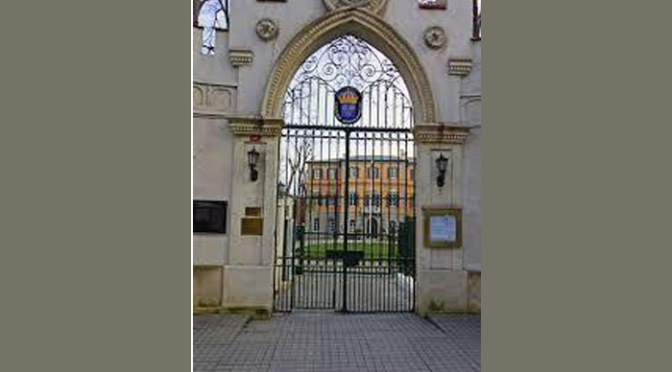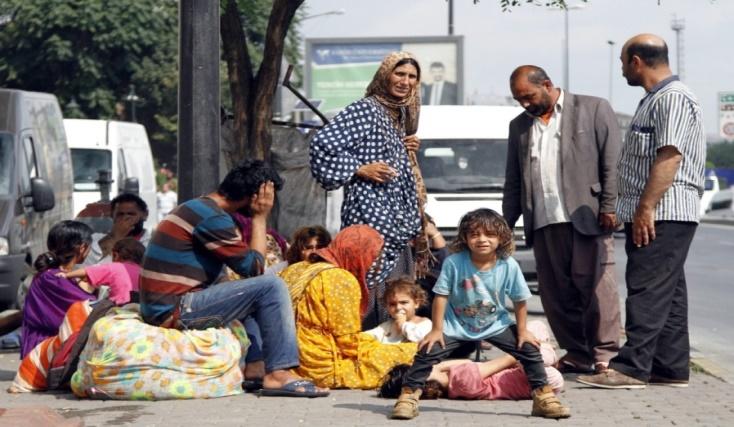Travel
Posted on : June 23, 2019Author : AGA Admin

‘Yeni Türkiye’
It was probably the fact that the sky was cloudy and the day dark in addition to an incessant rain that had refused to stop since morning that the faces of the crowd of asylum seekers in front of the closed gates of the Swedish Consulate in Istanbul looked so full of despair. The Swedish Consulate and my own destination, the Swedish Research Institute in Istanbul (SRII), is situated on the Tunel side of Istikal Caddesi, one of Istanbul’s elegant pedestrian streets lined on both sides by a late Ottoman era buildings and small avenues opening into shops lined with flowers.
Previous visits to SRII had been uncomplicated. Though located within the compound of the Swedish Consulate entry had been easy and in any case never accompanied by calls to verify names and passport details. The green laws inside looked much the same but somehow the image of the crowd kept outside the gates lingered. The presence of refugees was also evident in other parts of the city and particularly the international terminal of the crowded Ataturk airport, where they seemed to be awaiting exit to unknown destinations.
The first Syrian refugees began to cross into Turkey in April 2011. This was a time when Turkey’s relations with the Syrian government had not yet been ruptured. By the end of 2011 the Turkish government had thrown its weight behind the Syrian opposition and recognized the then Syrian National Council as the representative of the Syrian people. Turkey’s expectation was that the Assad regime would not last long. It was against this background that in October 2011, Turkey declared open door policy towards refugees fleeing Syria and extending to them a legal framework known as “temporary protection”. Till date over 3 million Syrian refugees have fled into neighbouring states and Turkey has received the largest numbers with refugees housed in 22 camps along the border but also large numbers of unregistered urban refugees. The persistence of the conflict in Syria and the recognition that the refugees, with “guest” status are unlikely to return home anytime soon, is becoming a challenge for Turkey. And this is impacting the host state not just politically and economically but also socially. There are subtle hints in the course of conversations about the disruptions that refugees cause within the city often accompanied by concerns about personal safety. There are also comments on a state policy that had failed to correctly assess the situation.
There also seemed to be fewer cats that normal within the compounds of the Consulate. One was reminded of an article during the Gezi Park protests which had reported on the plight of the cats from the tear gas used against the protestors. Gezi Park, the focus of protests to save a public space, is on the opposite end of Istikal Caddesi on Taksim. Istikal Caddesi itself has been the centre of a fair number of protests in recent the years from protests against abortion laws and restrictions on the internet to the protests against the Soma mining incident.

Turkey today is visibly more divided than before and issues of contention have moved beyond that the duality of secular versus religious inclinations. There is resentment over visible disparities that have accompanied a sweeping increase in overall prosperity. There are comments on a palatial building with 1150 rooms and remarks on the city gates that have been constructed on the roads leading to Ankara. The overall mushrooming of construction is visible in the outskirts of both Ankara and Istanbul. So are comments on the implementation of urban transformation through sudden top-down decisions that do not sufficiently account for environmental protection or consultation with citizens. These have been criticized as making the emergence of a consensus on the pace and nature of economic development difficult. On the other hand there is emphasises on a ‘’new’’ (yeni in Turkish) Turkey where there will be significant reconstruction of the past. The degree of reinterpretation will however, remain in question as Turkey seeks to situate itself in a polarized neighbourhood with all its attendant spill-over issues.
Anita Sengupta
Director, AGA
(Written after a visit to Istanbul in the first week of May 2015)





Leave a Reply